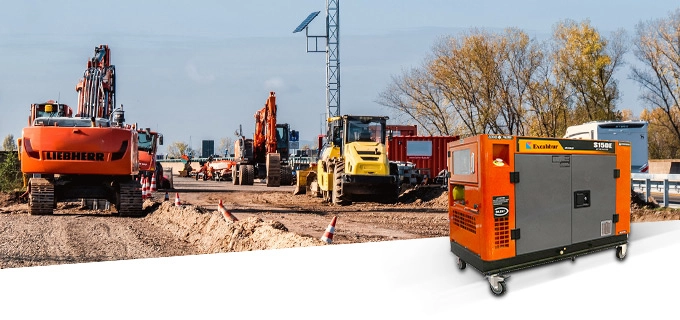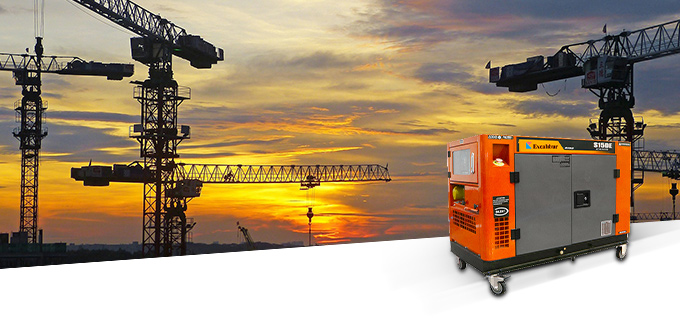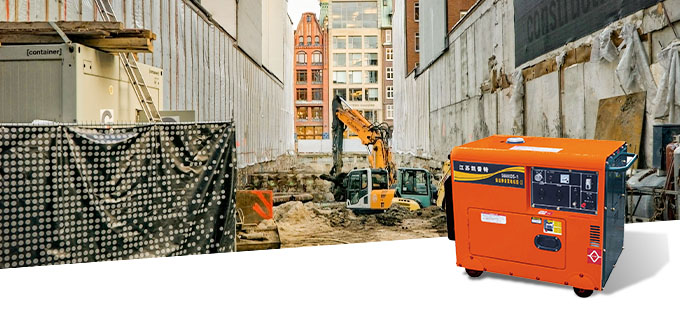Ensuring the safe use and storage of gasoline is paramount when operating generators. Gasoline, a highly flammable and volatile fuel, requires careful handling to prevent accidents and injuries. In this comprehensive guide, we’ll explore essential safety tips for properly using and storing gasoline for generators, ensuring the well-being of both users and their equipment.
Choose the Right Container
When storing gasoline, use only approved containers designed for fuel storage. These containers should be made of durable materials, such as high-density polyethylene, and equipped with a secure and well-fitted lid to prevent spills and vapors from escaping. Avoid the use of containers that are not designed to store gasoline.
Store gasoline in a well-ventilated place
Gasoline releases potentially harmful gases, so it is dangerous to inhale a lot. Store gasoline in a well-ventilated place, preferably outside. Avoid storing gasoline in basements, enclosed sheds, or other confined spaces where vapors can accumulate. Adequate ventilation helps disperse fumes and minimizes the risk of ignition.
Use Approved Fuel Containers
Confirm that the container for storing gasoline has been approved by the safety authority.Look for containers with a label indicating compliance with safety standards. Approved vessels are designed to withstand the chemical properties of gasoline, reducing the risk of leakage and vessel failure.
Keep Gasoline Away from Ignition Sources
Gasoline is highly flammable, and even small sparks or open flames can lead to combustion. Always keep gasoline containers away from ignition sources, including pilot lights, electrical appliances, and potential sources of sparks. Do not smoke or allow others to smoke in the vicinity of gasoline storage.
Use a Funnel for Pouring Gasoline
To minimize spills and avoid direct contact with gasoline, use a funnel when pouring fuel into the generator’s tank. A funnel helps control the flow of gasoline and reduces the likelihood of spills, which can pose both safety and environmental risks.
Ground generator
When the generator is operated, it must be ensured that the generator is grounded correctly. The grounding prevents the buildup of static electricity and reduces the risk of sparking gasoline vapors. Follow the manufacturer’s guidelines for grounding your specific generator model.
Turn Off the Generator Before Refueling
Always turn off the generator and allow it to cool before refueling. Operating a generator while refueling poses a serious risk of ignition due to the hot engine components. Give the generator sufficient time to cool down before adding gasoline to the tank.
Avoid Overfilling the Tank
Overfilling the gasoline tank can lead to spills, creating a hazardous situation. To prevent overfilling, fill the tank slowly and use a funnel to control the pouring process.Leave some space in the tank to accommodate the expansion and contraction of the fuel as it changes in temperature.
Store the gas away from children and pets
Gasoline containers and generators should be kept out of reach of children and pets.Gasoline is toxic if ingested, and children or animals may be curious and unaware of the dangers associated with the fuel. Store containers in a secure location, and educate family members about the importance of staying away from the generator and fuel storage area.
Use fuel stabilizer
Over time, gasoline disassembles and varnishes and colloids accumulate, blocking the generator’s fuel system.To prevent these issues, consider using a fuel stabilizer when storing gasoline for an extended period. Follow the manufacturer’s recommendations for the correct amount of stabilizer to use.
Label Gasoline Containers Clearly
Label gasoline containers clearly with the word “Gasoline” and include any additional safety information or warnings. Proper labeling helps prevent accidental use of gasoline inappropriately, such as mistaking it for another liquid.
Perform Regular Inspections
Regularly inspect the gasoline containers, checking for signs of damage, leaks, or deterioration. Replace any damaged or compromised containers promptly to prevent spills and accidents.
Store Gasoline in Approved Quantities
Check local regulations regarding the maximum quantity of gasoline that can be stored at a residential property. Adhering to these guidelines ensures compliance with safety standards and reduces the risk of accidents.
Have Fire Safety Equipment On Hand
When using gasoline or generators, you should always have fire safety equipment such as a fire extinguisher. Know the correct use of a fire extinguisher and make sure it is functioning properly.
Educate Users on Generator Safety
If multiple people use the generator, ensure that everyone is educated on proper safety practices. Share guidelines on refueling procedures, storage precautions, and emergency response protocols.
In conclusion, the safe use and storage of gasoline for generators require a combination of proper equipment, responsible practices, and adherence to safety guidelines. By following these safety tips, users can minimize the risks associated with gasoline and ensure a secure environment for both themselves and those around them. Safety should always be a top priority when dealing with flammable fuels and power-generating equipment.




